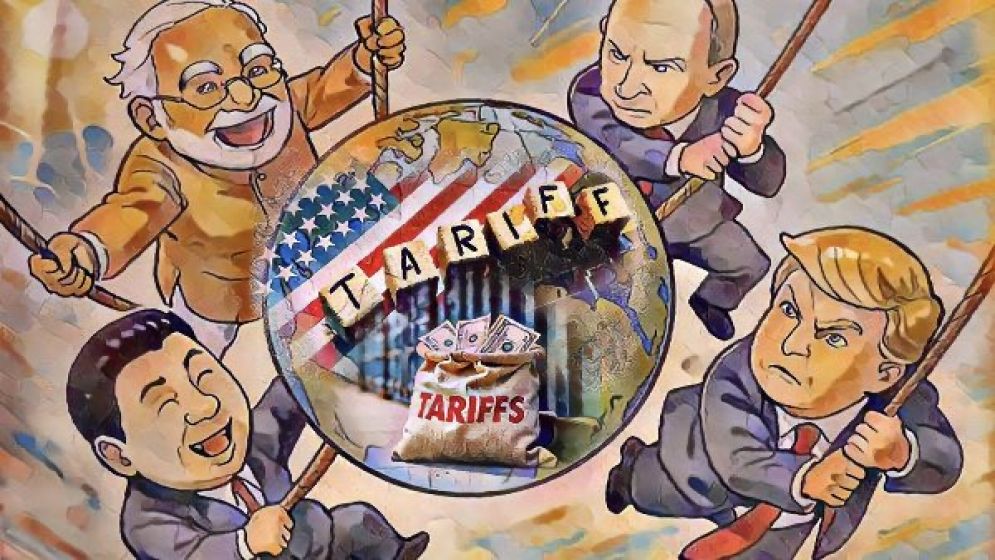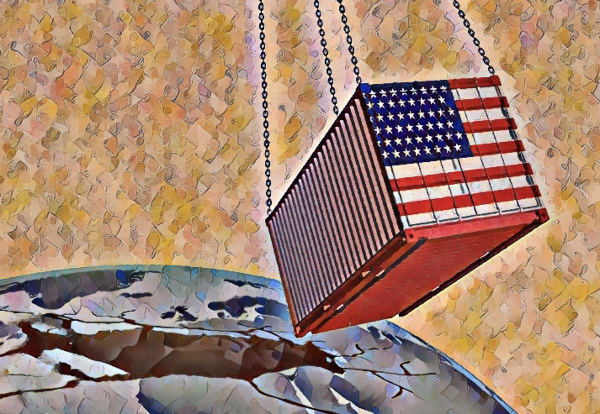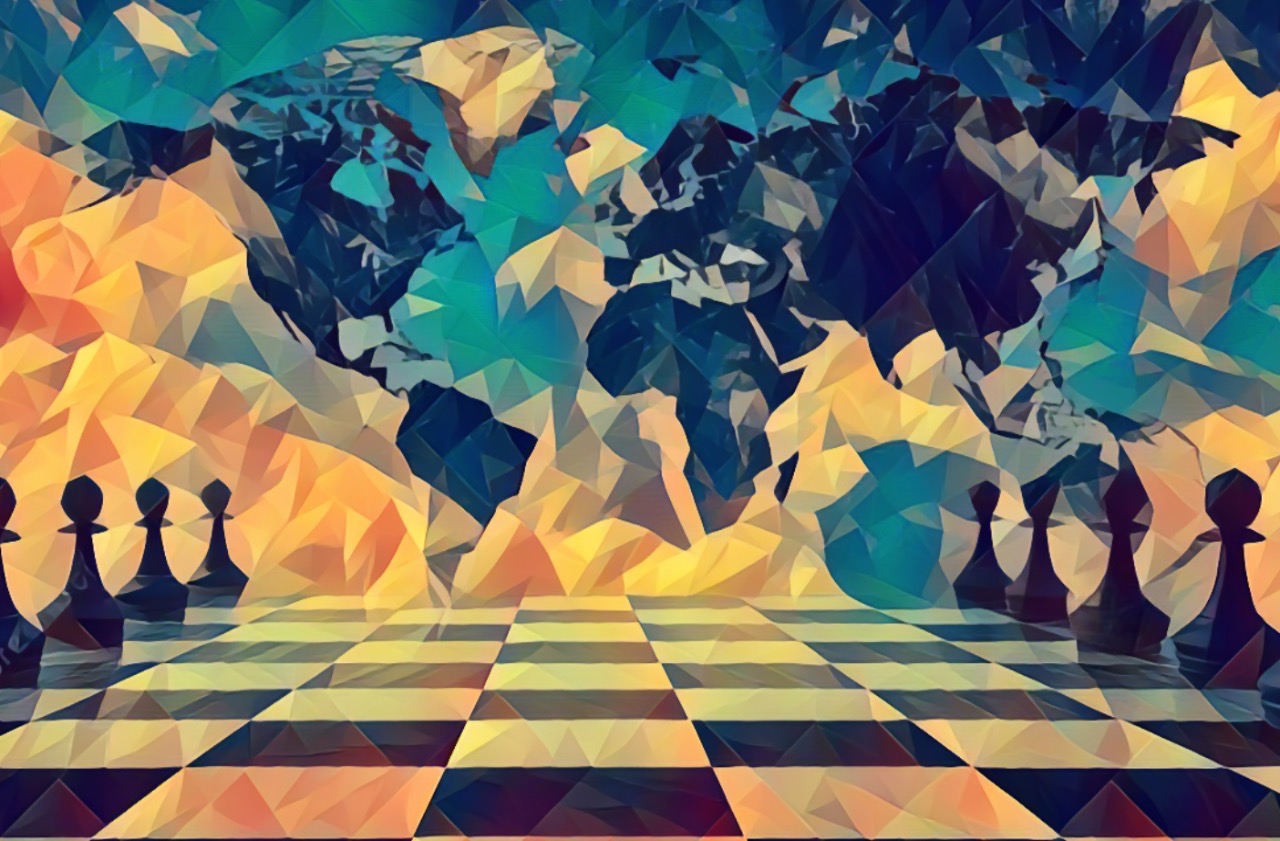Will a Trump–Putin reset ease India’s tariff burden?

India–Russia ties have just received a curious shot in the arm–from Washington, of all places.
When Donald Trump announced additional tariffs on Indian goods as “punishment” for New Delhi’s continued purchases of Russian crude, the intended pressure campaign had the opposite effect.
Rather than retreat, India doubled down, quietly reassuring Moscow that its energy calculus would not bend to White House dictates.
The symbolism was unmistakable. Almost immediately, New Delhi inked a protocol on strategic industrial cooperation spanning aluminium, fertilizers, railways, and mining technology.
And, in a telling gesture, Prime Minister Narendra Modi dispatched his national security adviser, Ajit Doval, to Moscow.
Doval’s meetings with Vladimir Putin and top Kremlin officials went beyond boilerplate diplomacy. He described the India–Russia relationship as “multifaceted,” placing special emphasis on long-standing military cooperation–still a cornerstone of India’s strategic posture, even amid deepening ties with the United States.
What made Doval’s visit more intriguing was its timing. He arrived in Moscow just as Trump’s special envoy, Steve Witkoff, was holding his own discussions with Putin.
Out of those conversations came the surprise announcement of a Trump–Putin summit–scheduled in Anchorage, Alaska, the land Tsar Alexander II sold to Washington in 1867.
If the meeting proceeds as planned, Putin will step onto American soil for the first time in a decade and will be the first Russian leader to visit Alaska in more than 150 years.
For Trump, the stakes are obvious. Should the summit yield even the outlines of a peace agreement on Ukraine, he would claim the mantle of “peacemaker”--a narrative he has long sought.
The context, of course, is crucial. Analysts recall the Istanbul talks of April 2022, which produced a tentative framework for a neutral Ukraine retaining nearly all of its territory except Crimea.
That deal collapsed under Western pressure, with policymakers in Washington and European capitals believing at the time that Russia could be strategically weakened–perhaps even destabilized internally.
Two years later, the calculus looks very different. The war has dragged on at enormous human cost. The idea of regime change in Moscow also has evaporated.

Behind the scene of the Anchorage meet
Increasingly, Western officials acknowledge that the most realistic “off-ramp” involves Ukraine formally renouncing NATO ambitions and accepting further territorial loss–nearly one-fifth of its land, on top of Crimea.
So who, really, is being forced to the table in Anchorage? Is Moscow, squeezed by sanctions and tariffs, looking for relief? Or is it the West, chastened by battlefield stalemates and weary publics, seeking a way out?
For New Delhi, the nuances however matter less than the broader strategic picture.
The Anchorage summit may or may not deliver a breakthrough. Trump himself has lowered expectations, describing it as merely “a feel-out meeting.” But India’s moves suggest a clear bet: regardless of whether peace emerges in Alaska, Russia remains a partner too central to jettison.
That is the message Ajit Doval probably carried to Moscow. It is also the signal Trump’s tariffs inadvertently amplified. In the great game of shifting alliances, sometimes pressure creates exactly the opposite effect.
Even if the Anchorage summit succeeds in stabilizing relations between Washington and Moscow, the thaw is unlikely to extend quickly to Europe.
The rhetoric of the past three years–Europe’s bitter denunciations of Russia and Moscow’s scornful dismissal of Europe as a strategic actor–will not fade overnight. The wounds are too fresh, the mistrust too entrenched.
Some in Western capitals may hope that a “grand bargain” with the United States could gradually loosen Moscow’s embrace of Beijing. But that expectation rests on fragile ground.
For Russia, there is no plausible scenario in which distancing itself from China yields immediate strategic or economic benefits. To the contrary, Beijing provides Moscow with markets, investment, and a geopolitical hedge against Western pressure.
Russia’s strategic vision remains consistent: dilute the dominance of the US-led West and prevent a bipolar world where Washington and Beijing alone set the terms.
That is why Moscow would be wise to resist any triumphalism, even if the Ukraine war eventually tilts in its favor. A premature declaration of victory could harden divides rather than open doors.

World of shifting poles
India meanwhile has openly welcomed the announcement of the Trump–Putin meeting in Alaska.
For Indian policymakers, even a modest stabilization of US-Russia ties represents a long-term strategic gain. In the short term, it may also ease the sting of new tariffs imposed under the banner of Ukraine sanctions.
More importantly, calmer waters between Washington and Moscow make India’s navigation of global geopolitics less treacherous–an essential condition for keeping its focus on the domestic imperative of economic development.
Still, Russia cannot be India’s all-purpose partner. It can help with energy, defense, and selective industrial cooperation, but it cannot deliver the full spectrum of capital, technology, and market access that India requires.
Hence the balancing act: New Delhi will need to secure assurances from Moscow on energy supplies at stable prices, especially if sanctions are eased, while recognizing that Europe and the United States will remain indispensable partners in India’s growth story.
The lesson of recent months should be sobering for India. Great-power aspirations demand relationships with all other great powers, not just one or two.
But those relationships must come with guardrails–strategic and economic mechanisms to dampen turbulence before it threatens to derail national priorities. Stability, not alignment, is the currency of power in today’s fractured order.
For South Asia, and particularly for Bangladesh watching from the sidelines, this balancing act matters. New Delhi’s success or failure in maintaining equilibrium between Washington, Moscow, and Beijing will inevitably ripple across the region.
In a multipolar world, survival may belong not to those who choose sides, but to those who can keep the balance without losing their footing.
—
Md Sazzad Amin is the chief geopolitical columnist of Bangla Outlook

